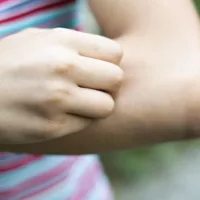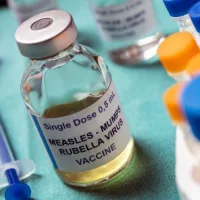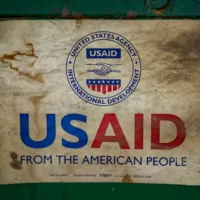 Courtesy Mount Sinai Health System (NEW YORK) — At age 34, Adele Rivas thought she was too young to have breast cancer, even though her mother had been diagnosed with the disease in her 40s.
Courtesy Mount Sinai Health System (NEW YORK) — At age 34, Adele Rivas thought she was too young to have breast cancer, even though her mother had been diagnosed with the disease in her 40s.
But a persistent lump in her breast led Rivas to get a biopsy test. Her mother tagged along for moral support.
“My mother said, ‘I have to come with you,’” Rivas remembers. “She came, thank goodness.”
With her mother by her side, Rivas was diagnosed with stage two breast cancer.
Doctors quickly ordered an MRI scan, but Rivas, a physician’s assistant, was hesitant. She and her husband had been trying to have a baby, and the MRI could affect an early pregnancy.
But even as Rivas asked to take a pregnancy test, she said she felt silly. She knew the chances that she was pregnant were small. Two different doctors had declared her infertile and said she had a minimal chance to get pregnant naturally.
At the time of her diagnosis Rivas and her husband were investigating adoption options. Rivas was afraid to try IVF or other hormonal treatments due to cancer risks associated with higher estrogen levels.
When Rivas asked to take a pregnancy test, she thought she was just delaying dealing with her cancer diagnosis.
“A voice told me ‘You’re really in denial,’” about cancer, Rivas recalled thinking at the time.
When a nurse came back after the test, she told Rivas it was likely positive but it was so early to be sure. They would have to wait another 48 hours for doctors to be completely sure.
“I left that day not knowing if I was pregnant but knowing I have breast cancer,” said Rivas.
Two days later doctors repeated the test and confirmed she was pregnant. While Rivas and her husband Luis Rivas were excited about the pregnancy, they now had to consider their options.
“I needed to figure out how to handle this, if we could keep the pregnancy,” said Rivas.
Rivas ended up at Mt. Sinai hospital in New York, where she was treated by Dr. Christina Weltz. While unusual, Rivas’ case is hardly unique, Weltz said. Approximately one out of every 3,000 women is diagnosed with breast cancer.
“The way that you treat it, really depends on a lot of factors including at what stage of the pregnancy [the cancer] is diagnosed,” said Weltz. “The question that really arises for every aspect of the treatment is whether the breast cancer treatment is compromising the safety of the pregnancy or if maintaining a safe pregnancy is compromising the treatment of the breast cancer?”
After talking to her doctors about options Rivas decided to keep the pregnancy, but go through a grueling treatment schedule that included a mastectomy in her first trimester and chemotherapy in her second and third trimesters.
Rivas’ doctors warned her that prolonged time in surgery could lead to miscarriage so Rivas was unable to have breast reconstruction at the same time as her mastectomy.
“I’m flat with no nipples and no breasts, but that was worth it to me,” said Rivas.
After having surgery at six weeks, Rivas also had to deal with morning sickness as she prepared for her chemotherapy in her second trimester.
Dr. Joanne Stone, a professor of obstetrics, gynecology and reproductive science at Mt. Sinai hospital in New York, treated Rivas and said she hoped Rivas’ story would give other women comfort if they’re diagnosed with cancer during pregnancy.
“What I think is really important about this story is that people know you can get diagnosed and you can get treated when you’re pregnant,” said Stone.
At four months Rivas started chemotherapy treatments. Rivas and her husband moved in with her mother to save money and so that they would have support when the baby came. Rivas credited her husband Luis Rivas with keeping her sane. She said sometimes she broke down and cried, but mostly was able to focus on the positive.
“I can’t believe how fast things can change and how much you can endure,” said Rivas. “I think of myself as a pretty tough person. If anyone told me that I was able to go through this, I would say they’re nuts.”
After four rounds of chemotherapy, Rivas was finished with her cancer treatment. Her body had changed not only due to pregnancy but the treatment as well. While her appetite was steady, the chemotherapy led to hair loss.
“After the chemo was done, I was pretty much a normal pregnant person without hair,” said Rivas. “I looked pretty silly and no boobs — it was just crazy.”
After getting through all her cancer treatments, Rivas remained worried about her son. She was afraid he could be at risk for being underweight or premature.
But on March 10, about two months after stopping cancer treatment, Rivas gave birth to a healthy boy. Rather than being underweight, Rivas’ son, named Conatantino or “Tino,” weighed in over 8 pounds.
“He’s a happy, happy soul,” said Rivas. “The only time he gets upset is when he’s hungry. He’s growing like crazy. He’s a big boy, he’s in the 95th percentile for height and weight.”
Now caring for a 6-month-old infant, Rivas and her husband are still at her mother’s home. But the couple is ecstatic over the birth of their first son. Rivas has now started working with other foundations for young women undergoing cancer treatment.
After giving birth, Rivas was also put on a medication to stop her from producing estrogen to diminish the chance of relapse.
If she stays on the medication as recommended, she won’t have a chance to have another child for 10 years, when she will be 44.
“This was our last chance at having a family. It almost didn’t happen,” said Rivas. “I can’t imagine not having him here. We don’t know why our prayers were answered in such a strange way. Maybe I can be a model of strength for other people.”
Follow @ABCNewsRadio
Copyright 2014 ABC News Radio















